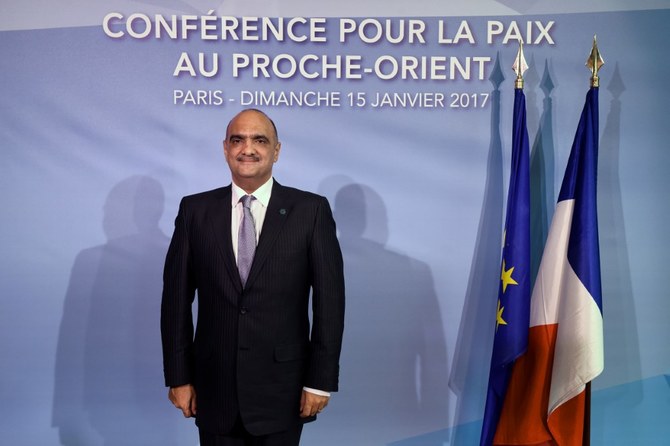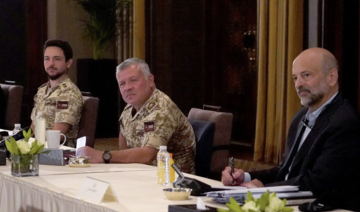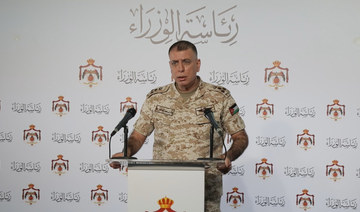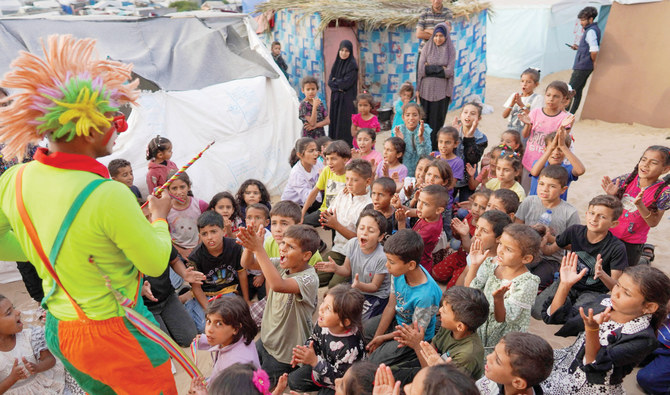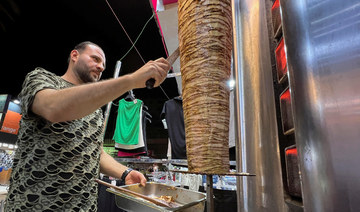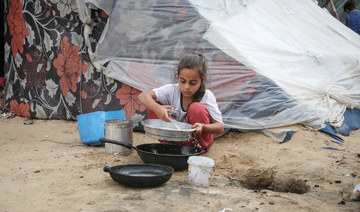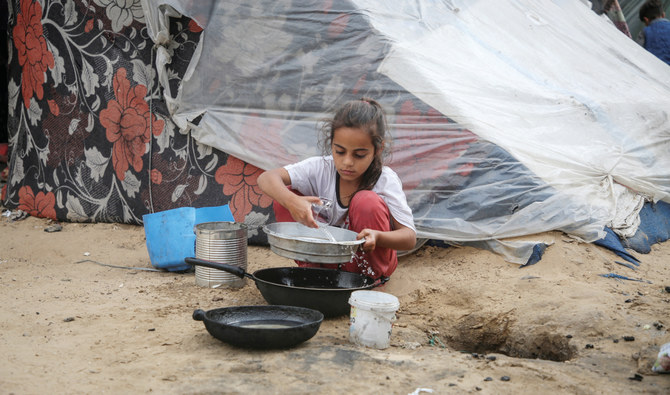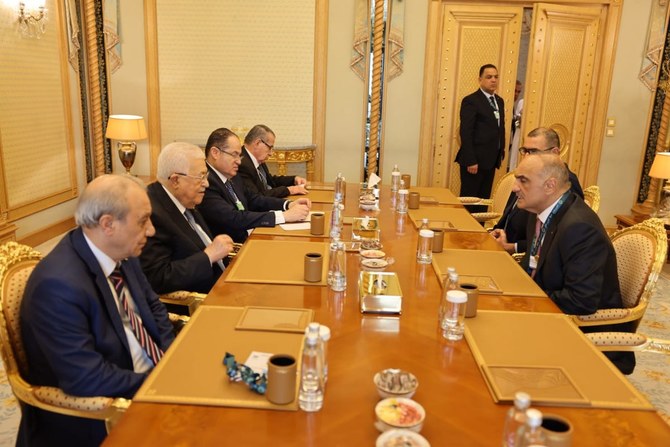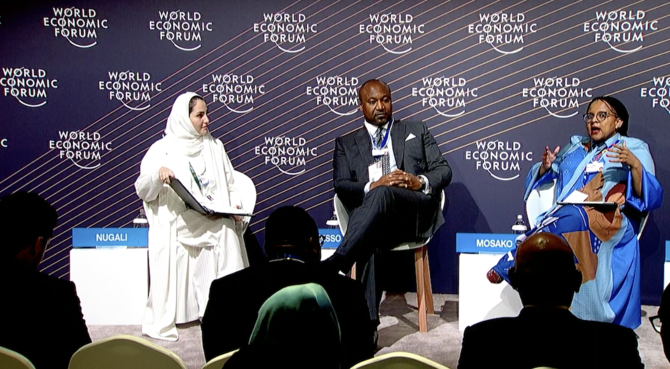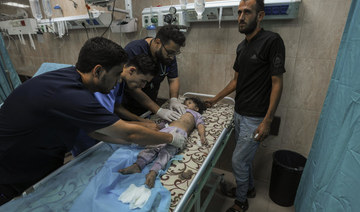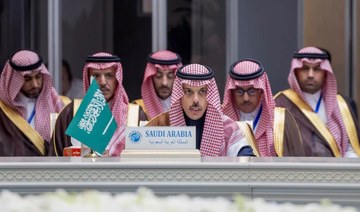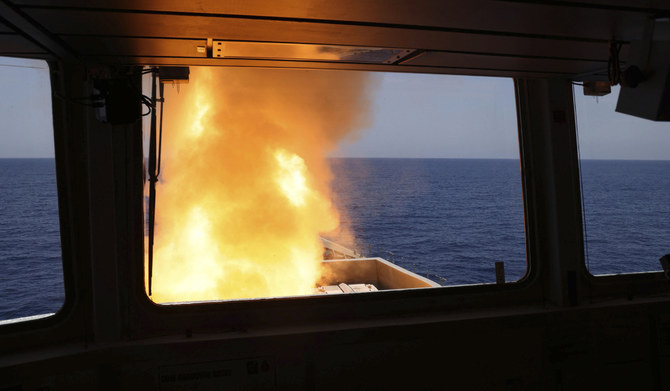AMMAN: Jordan’s King Abdullah appointed senior Hashemite court adviser Bisher Al-Khasawneh as the country’s new prime minister on Wednesday.
In a letter to Al-Khasawneh, the monarch said the “health of citizens” needs to be given top priority.
“To me, citizens’ health and well-being have been and will always be the topmost priority, which demands that the government continue to take all carefully studied measures to deal with the COVID-19 pandemic, in a manner that balances healthcare considerations with operating economic sectors and safeguarding citizens’ livelihoods,” the monarch wrote.
“Following the resignation of the Cabinet of Dr Omar Razzaz, I entrust you with heading and forming a new Cabinet, which must include competent and excelling leaders, and must be capable of undertaking the responsibility before it, in accordance with the Constitution.
“I, therefore, direct you to immediately begin working to increase the capacity of hospitals and increase intensive care unit beds across the Kingdom over the coming few weeks; as well as moving forward in dedicating and establishing centers to conduct tests and expand the accessibility of laboratories in all governorates, in accordance with the highest quality standards; while also working immediately to establish the National Epidemiology and Infectious Diseases Centre to enhance our ability to deal with the pandemic and any similar future challenges.”
He added: “I also direct the government to utilize the capabilities of the health sector, within a centralized approach that enables us to respond quickly to this pandemic and its developments. Work must continue to expand the number of health insurance beneficiaries.”
Fifty-one-year-old Al-Khasawneh is the son of a well-known Baathist leader, Hani. He holds a Ph.D. in law from the London School of Economics and a diploma from the Kennedy School of Government at Harvard University. He is a veteran diplomat who has served as Jordan’s ambassador to Egypt and the Arab League, headed the Europe and Americas’ desk at the Foreign Ministry, and is said to have turned down the job of ambassador to Tel Aviv. Al-Khasawneh will be the Jordan’s 13th premier during King Abdullah’s reign.
Jordan’s previous prime minister, Omar Al-Razzaz, resigned on Saturday, but the king asked him to stay on in a caretaker capacity until a new cabinet has been formed. The Jordanian parliament was dissolved on September 27 under a constitutional rule forcing the government to resign within a week of dissolution. Elections are scheduled for Nov. 10.
Malek Twal, a senior Jordanian diplomat who was formerly ambassador to Brazil, told Arab News that Al-Khasawneh is an “honorable and honest” man.
“He is a refined diplomat and is highly qualified for the position,” Twal said, adding that a prime minister “must be a generalist and needs to be knowledgeable of all aspects of government.” Twal believes that Al-Khasawneh’s two years of service in the royal court has given the new prime minister a strong understanding of domestic issues and challenges.
“But most importantly he has an understanding of what His Majesty thinks and will be able to translate that as he picks his government and begins dealing with the challenges of running a government in these difficult days,” he added.
Former MP Jamil Nimri, however, told Radio Al-Balad that Al-Khasawneh lacks domestic experience. “He has strong diplomatic credentials, but it is not clear about his ability to deal with local tasks, which will be the main focus of the new government,” he said.
Political analyst Labib Kamhawi also warned that the incoming prime minister “has no direct qualification (to deal with) with the internal challenges facing Jordan.”
Maamoun Abu Nawwar, a retired air force general, told Arab News that when assessing a new prime minister, one should primarily consider the individual’s character.
“It is character and education and, ultimately, his closeness to the monarch that means he has the confidence of His Majesty and he will be able to use that in running the country’s executive branch,” he said.
On Thursday, Al-Khasawneh met with President of the Jordanian Senate Faisal Al-Fayez, beginning a round of wide-ranging consultations over the formation of the new government.



